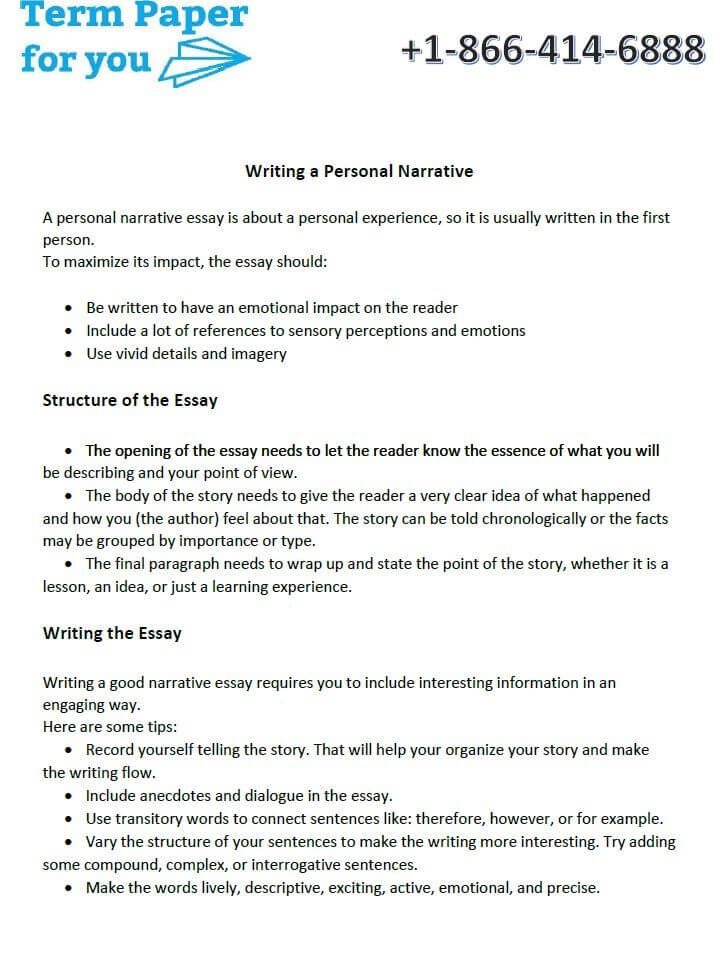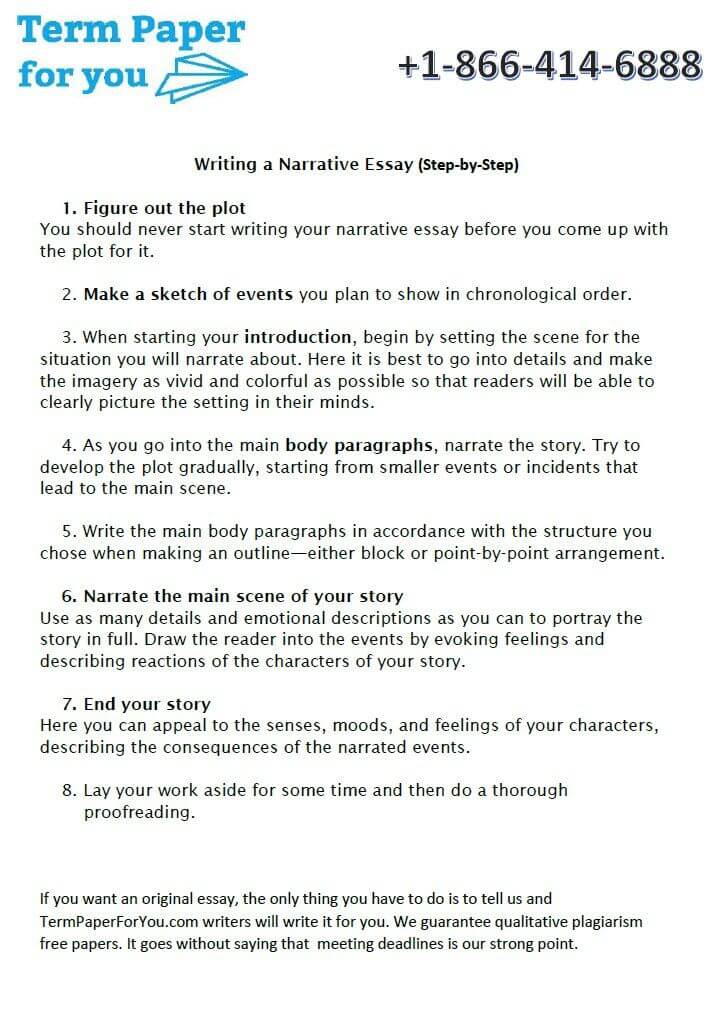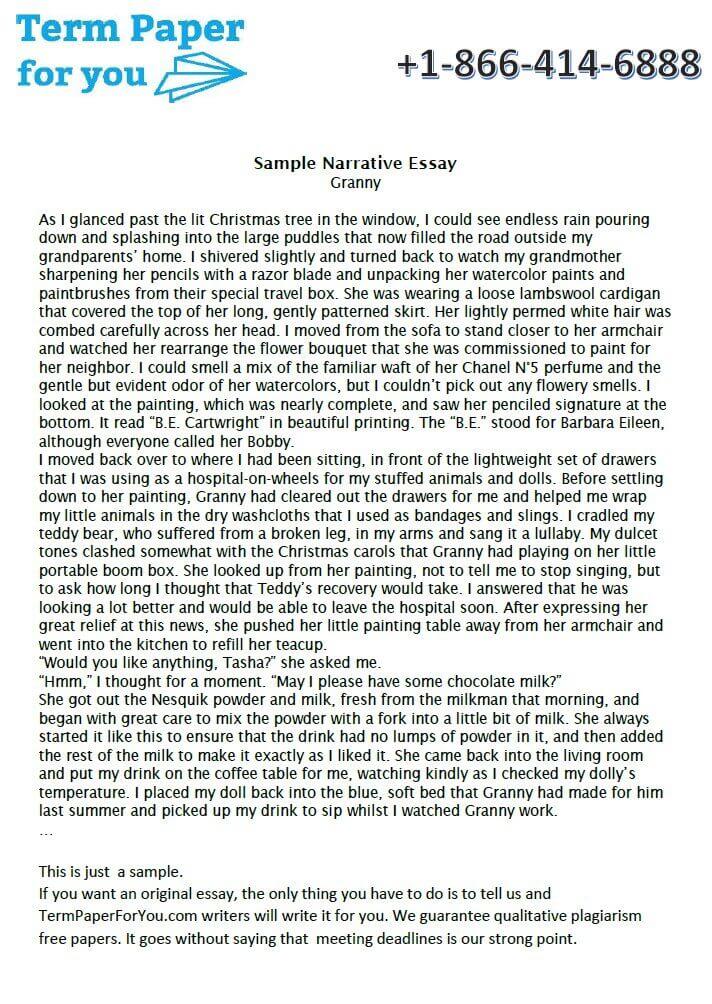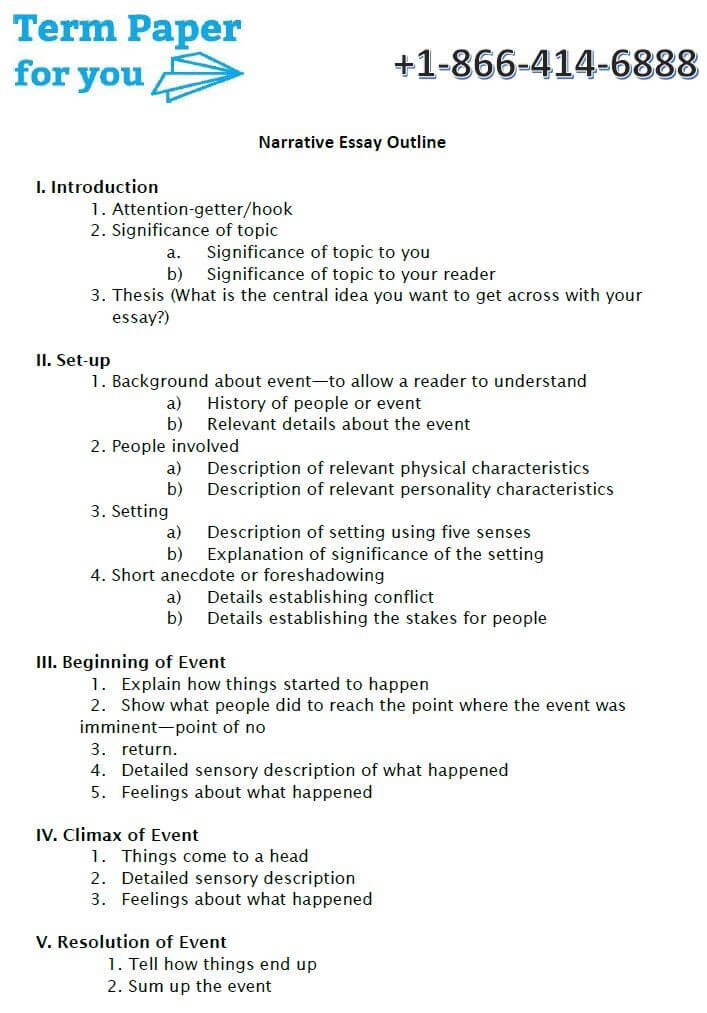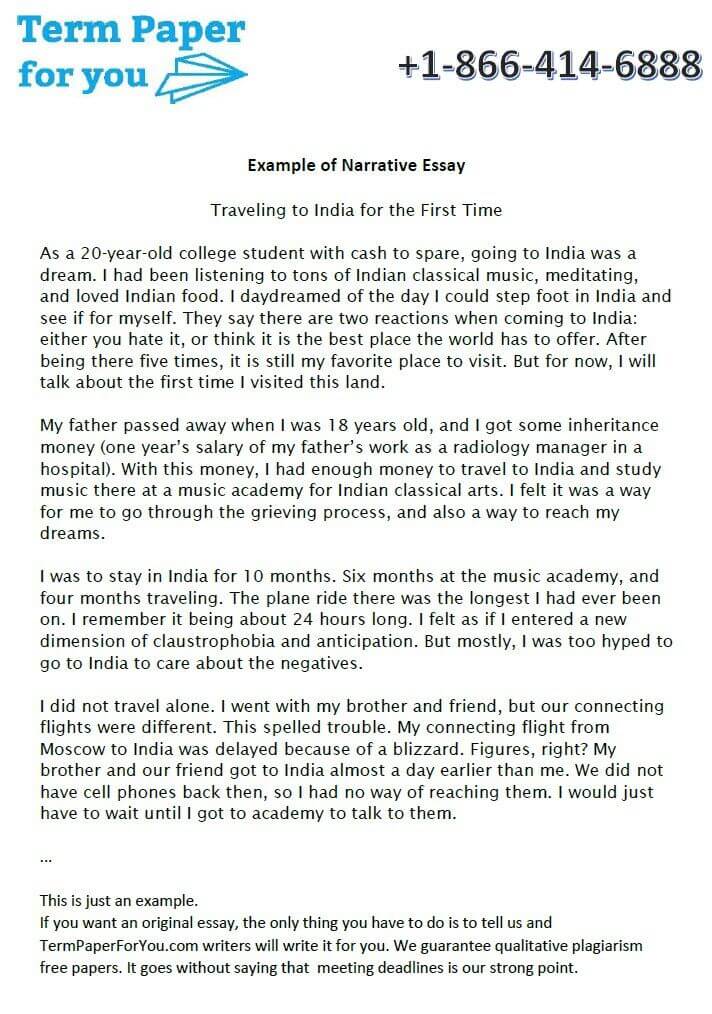Narrative writing is one of the most common and popular tasks any student, not depending on the academic level or major, can get. It is a great chance to show comprehensive understanding of the subject and to familiarize the audience with your outlook on the topic. Actually, this assignment is more appealing than research papers or other types of works, because they don’t require a deep analysis of sources and give lots of freedom in choosing the topic and arguments.
You have a chance to tell about an event or situation from your own life, giving the audience an ability to become a part of the story and to learn more about yourself. So why this task is so important?
When working on a narrative essay students acquire a variety of skills that can be useful in completing other types of academic assignments. They include choosing a proper vocabulary, time management, ability to edit and proofread your manuscripts, and much more.
In addition, these tasks appeal to creativity and greatly boost students’ imagination. As a bonus, you learn how to reflect on your past experience and to realize what lessons you can learn. On top of it, writing on the topic that matters to you is fun and interesting!
To get started, you need to pick a topic to discuss. Take this stage seriously, because discussing a subject you are not familiar with or not interested in may greatly influence the result. If you choose a boring topic, you will hardly create a text that will grab attention of the reader.
Narrative Essay Definition
Definition of a narrative essay may be different for institutions of various academic levels. Usually, it is a text, which tells a certain story and allows the author to share experience with a broad audience.
Good narrative essay is a great way to reach readers, because everyone loves stories. It is a way to be heard and listened to. In order to get a high grade you need to follow the required structure and formatting style, include all of the necessary sections and to know all of the guidelines beforehand.
If you are new to this task, it is better to order a narrative essay from professional writers or to download ready samples online. Actually, you may find inspiration in the most unexpected places: while reading news, talking to a friend or scrolling the social media feed. Just open your mind and let the creativity do the rest!
Guidelines on Writing a Narrative Paper
We have collected the best tips for students, who want to create a great narrative essay. Just read them attentively and avoid tones of mistakes!
- Be interested in the story
Even if you have an experience to tell, nothing will work out unless you are genuinely interested in the matter. You should want to share the story with the audience in order to make the readers become a part of the experience.
- Create an essay outline
Even experienced writers know that it is almost impossible to create an outstanding story from scratch without an outline and thorough planning. That is why you should always start your essay with a draft and then alter it as many times as needed. This approach is widely used even by the most prominent writers and it never fails.
- Include all of the elements
Not depending on the topic and subject, most narrative essays should contain the following elements: description, characters, plot and setting. They help the audience to understand your message and to read the text without any troubles.
That is why you need to be sure that your own story contains the above elements and is written based on the accepted literary rules and standards.
- Personal point of view
The audience needs to understand what your role in the essay is, so you must give them all of the necessary details on the experience or event. A big plus will be explaining motives of your behavior in various situations.
- Provide arguments
Even though a narrative essay is a story about your own life or thoughts, you still need to support your opinion with arguments. This will show the audience that you are professional and experienced in the topic.
- Use only meaningful details
To avoid wordiness and not to confuse the readers you need to understand what details are important for the story and what details should be avoided. Usually a narrative essay is quite short, so all of the data must have a direct connection with the story.
- Use simple language
The language you use in the text must be easy to understand and appropriate. The better you will manage to render your message to the audience, the more favorable opinion they will have about your writing. Note that even if you think that your text is easy to read, it may still be complicated for the readers, so you should always take a side glance on the essay.
- Stick to the chronological order
Not to confuse the reader and to stick to a concrete sequence, it is better to use a chronological order. However, if you are talking about an abstract issue without real-life examples, it is possible to place arguments in order of their importance.
- Get familiar with essay examples
Devote some time to reading examples of narrative essays. They will give you an idea of how your essay should look like and what elements it must consist of. The more you read, the better your writing will be!
There is a variety of video tutorials for authors and writers, where you can find interesting tips and a piece of a good advice. Luckily, Internet gives us almost unlimited opportunities!
- Always check the requirements
Even if you are writing an essay for a class and it won’t be published, your tutor may want to check how well you are able to follow the guidelines. That is why you need to ask for requirements in advance and to make sure that you meet all of them.
- Revise
When your essay is finished, you need to use grammar and spelling checkers, plagiarism software and other tools to make sure that the paper contains no mistakes.
In addition, you can ask your family members and friends to read the paper and make comments. Usually it is difficult to find typos or errors in the paper if you have been working on it for days.
- Highlight key elements
There are certainly the most important elements in the story, which you want the readers to notice. Make sure you highlight them using various literary devices and tools. This will greatly influence the result and will help your readers to understand your message.
Narrative Essay Examples
Sometimes students confuse narrative essays with novels. Yes, they are similar because they tell about experiences and personal life but there is a range of differences. This means that you need to know requirements of the particular assignment: its structure, size, formatting style and so on.
The last but not the least is making sure that your spelling and grammar is flawless, because it is very easy to ruin an outstanding plot with such silly mistakes.
So that you don’t leg behind making common mistakes, here are some good examples of how to write this type of essay the right way.


